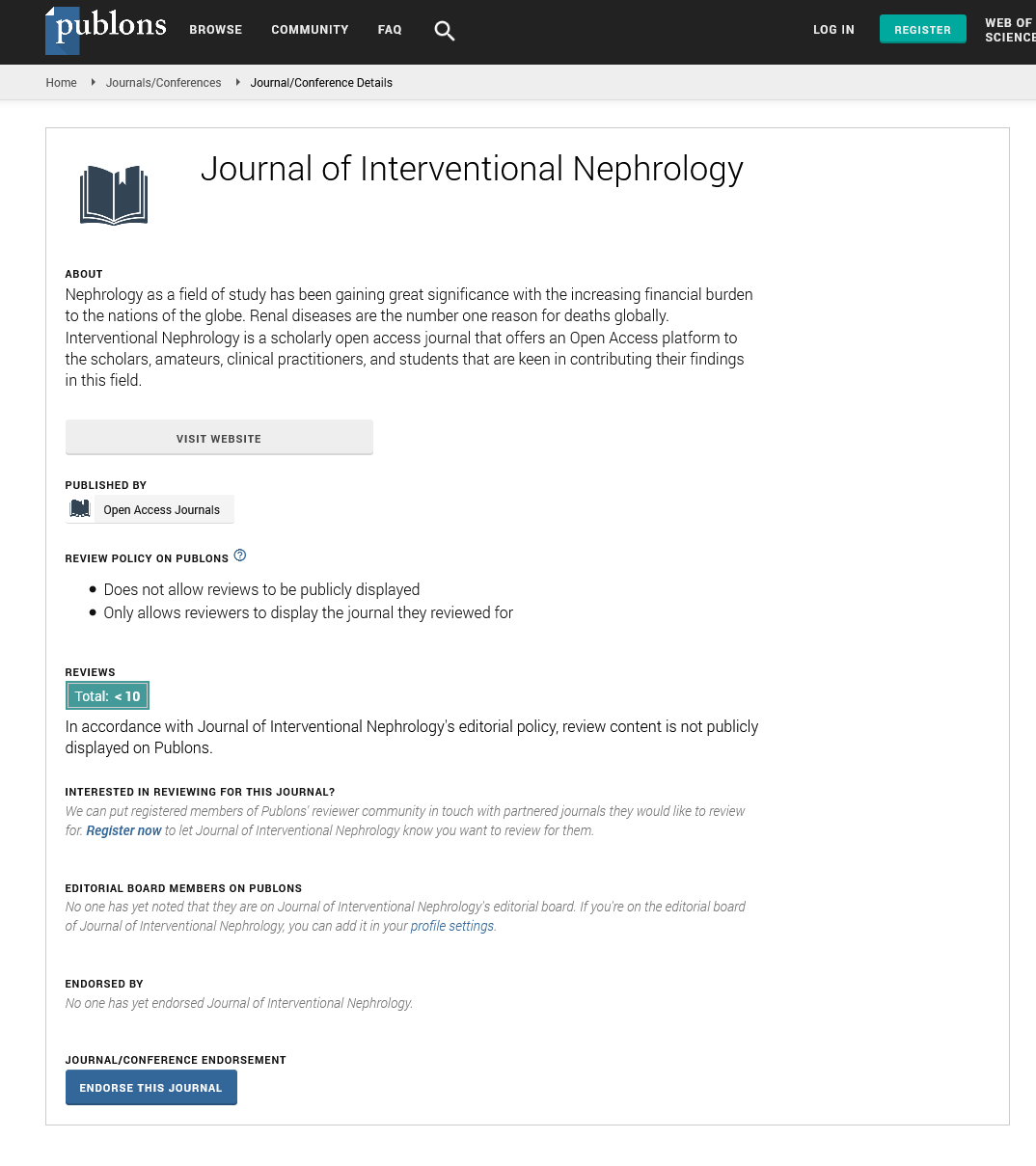Perspective - Journal of Interventional Nephrology (2024) Volume 7, Issue 4
Ethical Considerations in Nephrology Interventions
- Corresponding Author:
- Shaofeng Tan
Department of Medicine, University of New Haven, Turkey
E-mail: Shaofengtan1000@en.edu
Received: 29-Jul-2024, Manuscript No. OAIN-24-143625; Editor assigned: 31-Jul-2024, PreQC No. OAIN-24-143625 (PQ); Reviewed: 13-Aug-2024, QC No. OAIN-24-143625; Revised: 20-Aug-2024, Manuscript No. OAIN-24-143625 (R); Published: 30-Aug-2024, DOI: 10.47532/oain.2024.7(4).291-292
Introduction
Ethical considerations form a cornerstone of medical practice, particularly in the field of nephrology interventions where decisions impact patients’ health, autonomy, and quality of life. This article delves into the complex ethical issues surrounding nephrology interventions, exploring principles, dilemmas, and frameworks that guide clinical decisionmaking and patient care.
Description
Patient autonomy and informed consent
Respect for patient autonomy is fundamental in nephrology interventions. Patients must be adequately informed about their condition, treatment options, potential risks, and benefits to make autonomous decisions. Informed consent ensures that patients understand the nature of the procedure, its potential outcomes, and any alternative treatments available. Nephrologists and healthcare providers must communicate effectively, using lay language and supporting materials to facilitate informed decision-making.
Beneficence and non-maleficence
The principles of beneficence (acting in the patient’s best interest) and non-maleficence (do no harm) guide nephrologists in balancing potential benefits against risks when recommending interventions. This ethical framework requires thorough assessment of each patient’s medical history, prognosis, and individual circumstances to determine the most appropriate treatment plan. It also involves consideration of potential complications and adverse effects associated with interventions, ensuring that the benefits outweigh the risks.
Justice and resource allocation
Ethical dilemmas in nephrology interventions often revolve around justice and fair allocation of healthcare resources. With limited resources, including dialysis facilities, transplant organs, and specialized healthcare providers, decisions must prioritize equitable access to care based on medical need, patient prognosis, and societal considerations. Healthcare providers are tasked with making ethically sound decisions that promote fairness and minimize disparities in treatment outcomes among diverse patient populations.
End-of-life care and decision-making
Nephrology interventions also intersect with end-of-life care decisions, particularly concerning dialysis withdrawal or transplantation eligibility. Ethical considerations include respecting patient wishes regarding treatment continuation, considering quality-of-life factors, and involving patients and their families in shared decision-making processes. Advanced care planning discussions are crucial to align treatment goals with patient preferences and values, ensuring dignity and comfort in end-of-life stages.
Confidentiality and privacy
Protecting patient confidentiality and privacy is essential in nephrology interventions, where sensitive medical information is shared and accessed during diagnostic evaluations, treatment planning, and follow-up care. Healthcare providers must adhere to strict confidentiality protocols, maintaining trust and respect for patient autonomy. Secure electronic health records and communication platforms enhance data security and minimize the risk of unauthorized disclosure.
Emerging ethical issues and future directions
As nephrology interventions evolve with technological advancements and scientific discoveries, new ethical challenges emerge. Ethical implications of emerging technologies such as genetic testing, precision medicine, and artificial intelligence in nephrology require careful consideration of patient privacy, consent, and potential societal impacts. Moreover, addressing global disparities in access to nephrology care and resource allocation remains an ongoing ethical imperative.
Conclusion
Ethical considerations are integral to nephrology interventions, guiding healthcare providers in navigating complex clinical decisions, respecting patient autonomy, and promoting equitable access to care. Upholding ethical principles of patient-centered care, beneficence, justice, and respect for autonomy ensures that nephrology interventions prioritize patient well-being and uphold professional integrity. By addressing ethical dilemmas proactively and integrating ethical frameworks into clinical practice, nephrologists contribute to fostering trust, enhancing patient outcomes, and advancing ethical standards in nephrology care.
In summary, ethical considerations in nephrology interventions underscore the importance of balancing medical advancements with ethical responsibilities, ensuring compassionate, patient-centered care in all aspects of nephrology practice.


